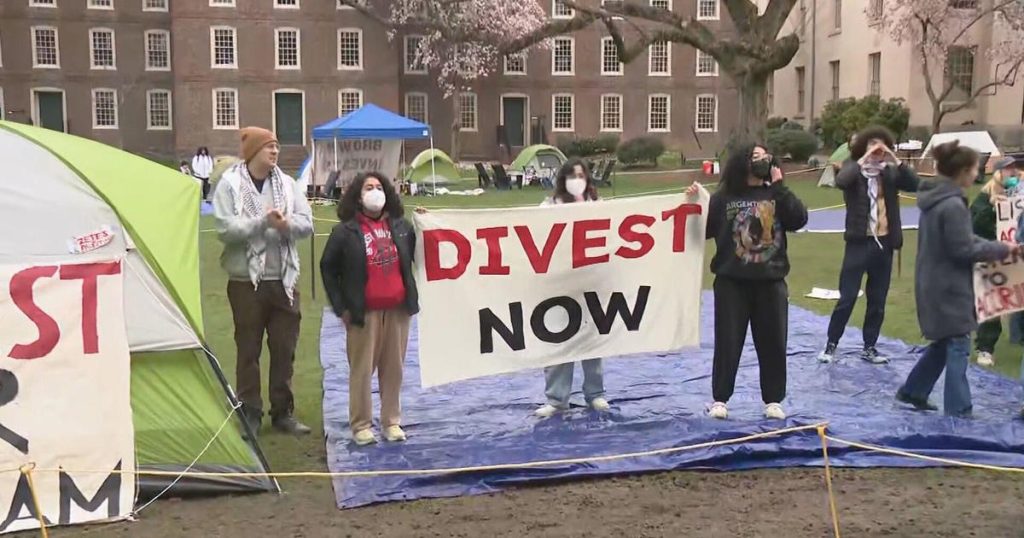College endowments have become a central focus of campus protests as students call for divestment from Israel and the military-industrial complex. This has raised questions about the effectiveness of divestment as a tool for enacting change and bringing awareness to social issues. College endowments are complex, consisting of various funds with different goals and purposes, making divestment a challenging and time-consuming process. Endowments are funded by donors and used to support programs, faculty, and student scholarships.
Divestment involves selling or disposing of investments that do not align with values or ethics. Student protesters are calling for colleges to divest from businesses associated with countries or industries that they believe are contributing to human rights abuses. Endowments are a significant source of funding for universities, with approximately 700 college endowments managing a total of $840 billion in assets. The lack of transparency regarding endowments’ investments has become a point of contention for many protesters.
The movement to divest from Israel has gained momentum as calls for boycotts, divestments, and sanctions against the country have increased. However, determining whether colleges are invested in Israel is difficult due to the use of alternative investments that lack transparency. Only one U.S. college, Evergreen State College, has agreed to divest holdings linked to Israel, while others have committed to disclosing their investment exposure. The effectiveness of divestment remains a topic of debate among experts, with research showing mixed results on its impact on targeted countries, industries, or companies.
Student protesters are using divestment as a way to raise awareness of human rights abuses and demonstrate their values. The pressure to divest from certain industries or countries has sparked conversations within endowments about social responsibility and ethical investing. However, the impact of divestment on targeted entities is uncertain, with some research suggesting little discernible effect on financial markets or companies. Despite this, protesters are focused on the broader goal of standing up against perceived injustices and human rights violations.
Endowments are a critical source of funding for universities, supporting various initiatives and programs. The complexity of endowments, with multiple funds and goals, makes divestment a challenging process that involves considering donor intent and investment strategies. The trend of divestment from Israel and other industries has put endowments in the spotlight, prompting discussions about social responsibility and ethical investing in higher education. As the debate continues, colleges and universities will need to navigate the complexities of divestment while balancing financial objectives with social and ethical considerations.














